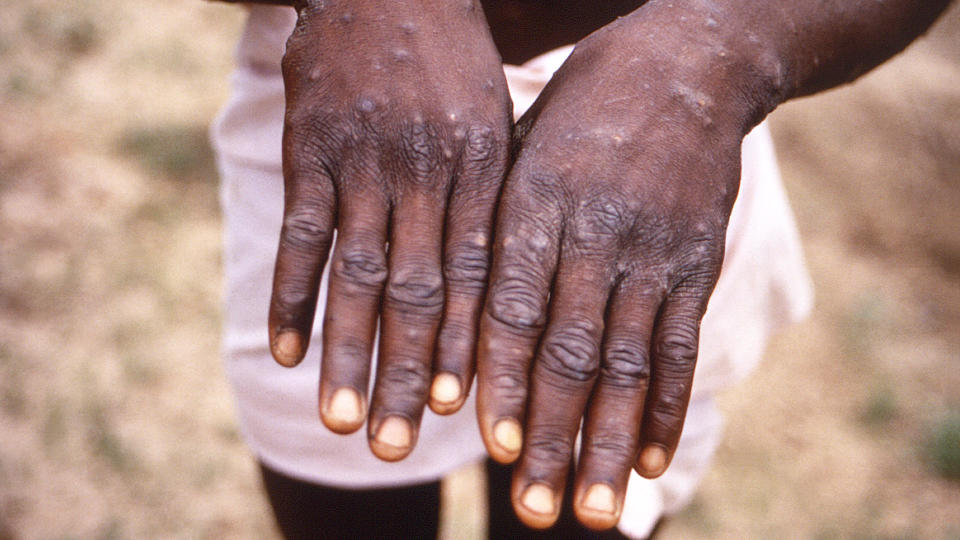How monkeypox spreads and why current cases are something "we've never seen"
- Oops!Something went wrong.Please try again later.
The monkeypox virus is causing concern among global health experts. While the illness is rarely seen outside Africa, the World Health Organization is reporting more than 90 cases in 12 countries beyond the continent.
So far, the Centers for Disease Control and Prevention says there is one confirmed case in the U.S., in Boston, reports CBS News chief medical correspondent Dr. Jon LaPook. There have also been suspected cases in Broward County, Florida, and New York City.
Monkeypox spread likely "amplified" by sex at 2 raves in Europe, leading WHO adviser saysWhat is monkeypox?
Monkeypox is a virus found in wild animals like rodents and monkeys. When it infects people, symptoms include:
feverheadacheaches and painsfatigueswollen lymph nodes
Within several days, a typical rash develops, that progresses to raised blisters that turn into scabs. Illness usually lasts 2-4 weeks.
For now, special tests done at the CDC are needed for definitive diagnosis.
How is it spread?
The virus is spread through body fluids, skin and respiratory droplets. "It's important to know that this virus really does require close personal contact," said Dr. Anne Rimoin, professor of epidemiology at the UCLA Fielding School of Public Health. She told LaPook that we are seeing cases happening in several countries at the same time: "We've never seen that."
Those cases resemble a milder version found in West Africa. But in areas with limited access to healthcare, that milder version can still be fatal, the morality rate being "between one and three, 3.5 percent in an African setting," said Rimoin.
In the United States, during a 2003 outbreak of monkeypox caused by an imported African rodent, 47 people became ill, but nobody died.

Are there treatments?
Possible treatments include a variation of the smallpox vaccine, antiviral drugs and antibodies.
LaPook asked, "Do we have enough smallpox vaccine? Do we have enough diagnostic ability?"
"We definitely have enough vaccine, and we definitely have access to the antivirals and the treatments that are needed," Rimoin replied.
"CBS Mornings" co-host Gayle King asked LaPook, "How concerned should we be about monkeypox?"
"This should be taken seriously, and it is being taken seriously by public health officials," LaPook said. "But remember, this is very different than COVID. When the pandemic started, SARS CoV-2, which is the virus that causes COVID, we knew nothing about it, it was a brand new virus. We had no therapeutics, we had no vaccines, we didn't know anything about that disease.
"This is very different. We've known about monkeypox for more than 60 years. There are vaccines, there are therapeutics, we have a lot of experience dealing with it, certainly in Africa."
Also, he noted, "At the beginning of the pandemic, it was spreading without people realizing it; they were asymptomatic. [Monkeypox] has a characteristic rash. It would be hard for it to spread widely without us knowing about it."
Senate looks to hold vote on CHIPS Act
White House preps for economic numbers and House Speaker Nancy Pelosi faces backlash for trip

